PayPalProductSocial Impact
By Jim Magats, SVP, Payments and SMB Solutions
Pollution from plastics is a critical global issue that has environmental, social, and economic implications. The equivalent of one garbage truck full of plastic is dumped into the ocean every 60 seconds, and between 1.15 to 2.41 million tons of plastic are estimated to be entering the ocean each year. Nearly two trillion pieces of plastic, weighing an estimated 80,000 tons and covering around 995,000 miles of the ocean’s surface, make up the Great Pacific Garbage Patch in the Pacific Ocean. Plastics in the ocean negatively impact marine life and microplastics are ending up in the food we eat.
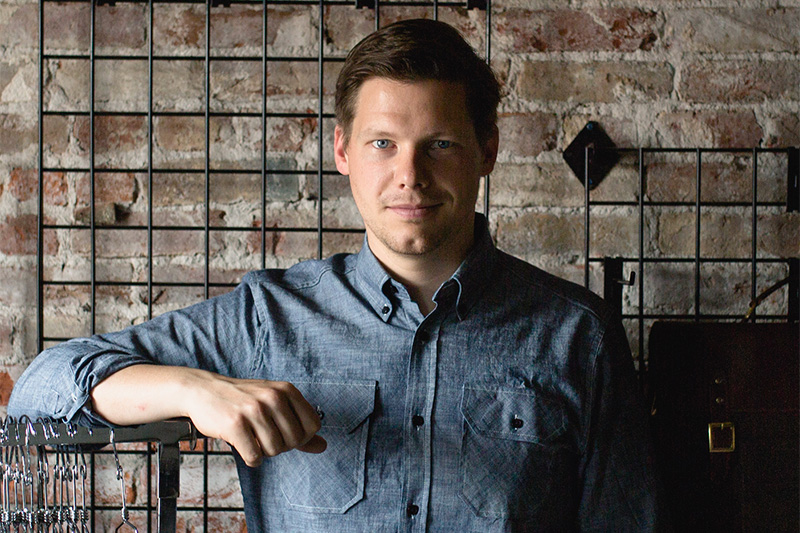
United by Blue founder and CEO Brian Linton
As we celebrate Earth Day, a day where people unite to honor and advocate for the health of our planet, I wanted to share the story of United by Blue, a Philadelphia-based B Corp apparel brand that prioritizes sustainable materials and ethical manufacturing to lead the charge toward better business practices. For every product purchased, United by Blue removes one pound of trash from oceans and waterways and so far, with the help of its community of volunteers, has removed more than four million pounds of trash from oceans and waterways.
I recently caught up with United by Blue founder and CEO Brian Linton, to learn more about how the company is balancing profit with purpose, how people can get involved in United by Blue’s volunteer cleanups, and how he and his business have learned to be flexible when faced with challenges. I’m inspired by Brian’s passion and commitment to a higher purpose, and I hope you appreciate his story as much as I did.
Jim Magats: What inspired you to start your business?
Brian Linton: The inspiration for United by Blue started from my childhood. I grew up in Southeast Asia and as a kid, I had around 30 fish tanks. Raising, breeding and caring for fish really became a passion of mine. I understood from a young age how important clean water is. Once I moved to the states, I started observing the bodies of water across the world and it became clear that plastic pollution was a global issue. This was when I founded United by Blue, which is a sustainable apparel brand with a focus on removing plastics from the oceans. We have removed well over four million pounds of trash working with thousands of volunteers. We try to use the business for environmental activism and action. For every product purchased, we remove one pound of trash from oceans and waterways.
JM: Can you talk about your B Corp status and what United by Blue is doing, both internally and externally, to forward its mission around cleaning up the ocean?
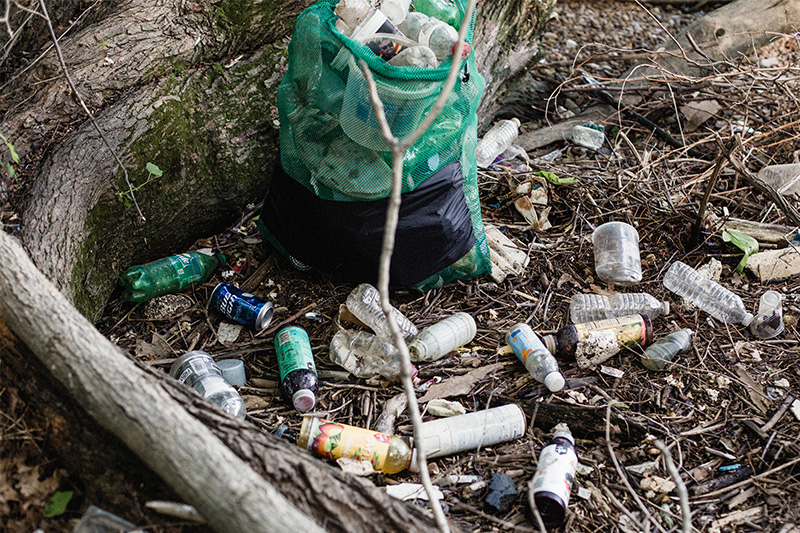
BL: We believe in balancing profit with purpose, and that businesses have a moral responsibility to be part of environmental solutions. This is the motivation behind our B Corp status, a certification we have proudly held since 2011. At the end of the day, we’re still a business, but we use our products and profits to do good in the world. We do this by making our products with natural and sustainable fibers and materials, by prioritizing ethical manufacturing, by facilitating easy ways for our customers to generate less waste by creating reusable and enduring products, and by addressing ocean pollution through our volunteer beach and waterway cleanups. As a Certified B Corp, we voluntarily undergo regular third-party audits to ensure we’re upholding the highest social and environmental standards in our operations. We are determined to spread the idea to our customers that if one business can make a difference, so can one person.
JM: PayPal has been your payments partner from the beginning. How has PayPal helped your business?
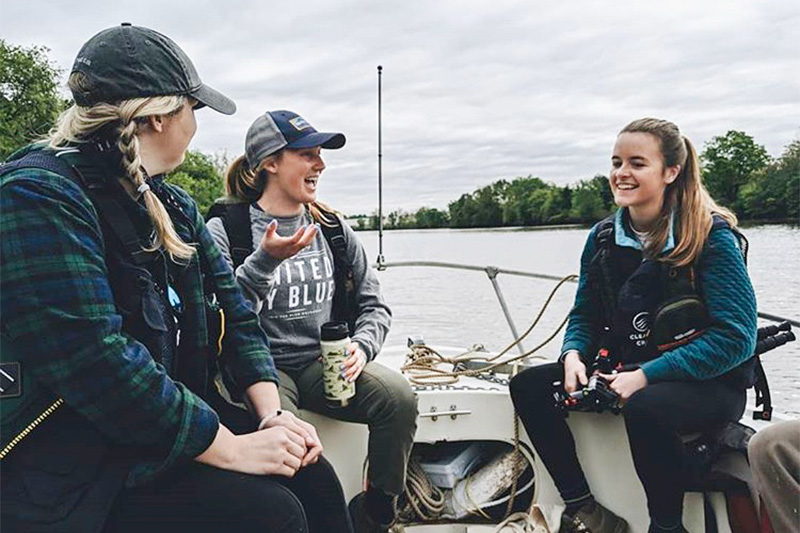
United by Blue volunteers
BL: We’ve used PayPal since day one, like many other successful businesses. Since launching our first e-commerce site more than a decade ago, PayPal Checkout was a payment option and a critical partner in our journey. PayPal has only increased in relevancy and usage on our ecommerce site. Also, the more volume we put through PayPal, the more opportunities it opens up for us. For example, United by Blue has used PayPal’s financing option to help smooth out our cash flow cycles that resulted from the supply chain issues. Ultimately, when those curveballs are thrown at you, having a financing option like that to help smooth out the challenges is really important. Finally, the speed of the payments, the integrity that PayPal has, and the confidence that accepting payments with PayPal gives us means that it’s one less thing we have to think about.
JM: What challenges have you faced, if any, as an omnichannel business?
BL: As an omnichannel retailer, we look at each channel differently in terms of the technology we use, the product launch cycle and even the product segmentation. For example, we design our apparel exclusively for our direct-to-consumer e-commerce and retail stores. We pulled our apparel from broad wholesale distribution to give customers who come directly to us something a little more special and unique. We do have wholesale distribution, but it’s with our accessories and less seasonal items. That said, on occasion we partner with wholesalers around our apparel if it’s a special collection with a deep, meaningful relationship that we really believe in. For example, Target has their own exclusive Impact Collection by United by Blue. When you buy a United by Blue item from Target, they’re the only ones that sell that item -- we don’t even sell it on our website. It’s a lot of work to manage all these channels in different ways, but because we do, we have a really compelling, personalized and non-competitive brand experience across channels.
JM: How are you managing through the supply chain issues?
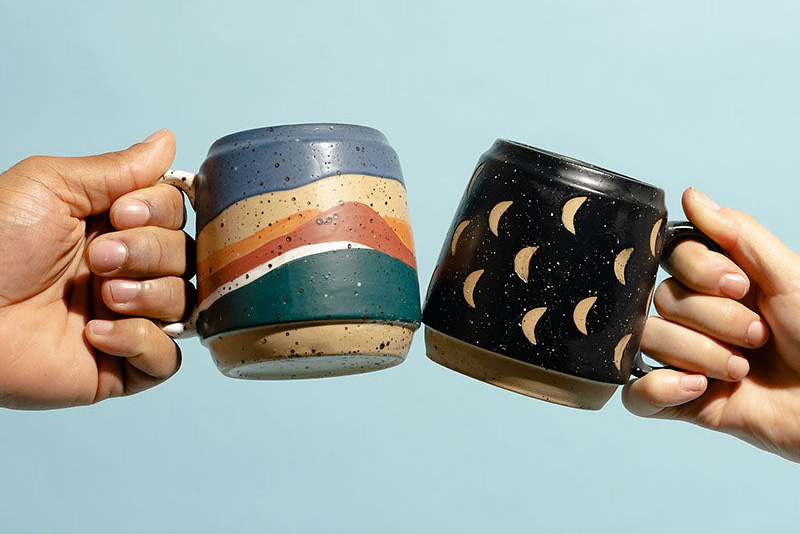
BL: Supply chains have been incredibly challenging over the past 18 months. When the issues began, it really negatively impacted our business. Say you’re making a shirt with buttons on it and you’re producing everything, and all of a sudden the buttons are delayed. That has a huge impact on the timeline and product launch cycles. But over the past 6 months, we’ve learned how to deal with it. We now work more closely with our manufacturer to get ahead of the cycles, so we are always working ahead of schedule. We’ve already booked out all of our production and purchase orders for the remainder of the year to get ahead of the supply chain issues. As a small business, you really need to be nimble. We’re still seeing delays as we start to prep for spring and summer seasons. But as a business that relies on international supply chains, we have now put contingencies in place to allow us to continue operating the business despite those challenges.
JM: What advice do you have for other entrepreneurs looking to start a business?
BL: A small business doesn’t have to be as complicated as people make it out to be. At the end of the day, you focus on the customer first and always. Customers don’t know about your balance sheets, supply chain issues, or your P&L. Just staying focused on the customer relationship and how you build those bonds is going to be more important than anything else you do. The internal part of our business is important – but in the big picture, if you don’t have the customers the rest doesn’t matter. That’s at the core – know who your customers are and focus on them more so than anything.
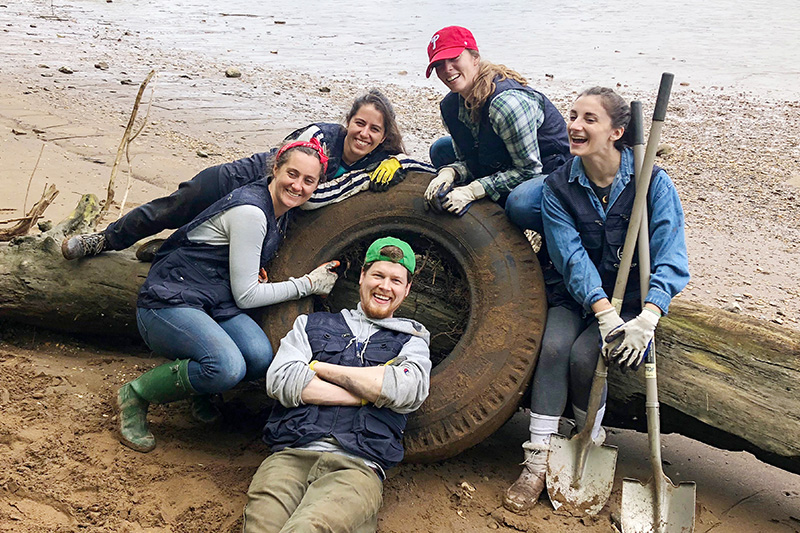
JM: How can people get involved in United by Blue’s volunteer cleanups?
BL: Anyone interested in volunteering can check out our social feeds (Instagram, Twitter, Facebook) and website to learn how to join us in our cleanup effort. And if you know of any area that needs attention, please let us know. We strive to make the world a more beautiful place.
Interested in sharing your story to inspire other small businesses? You can submit your business information here.